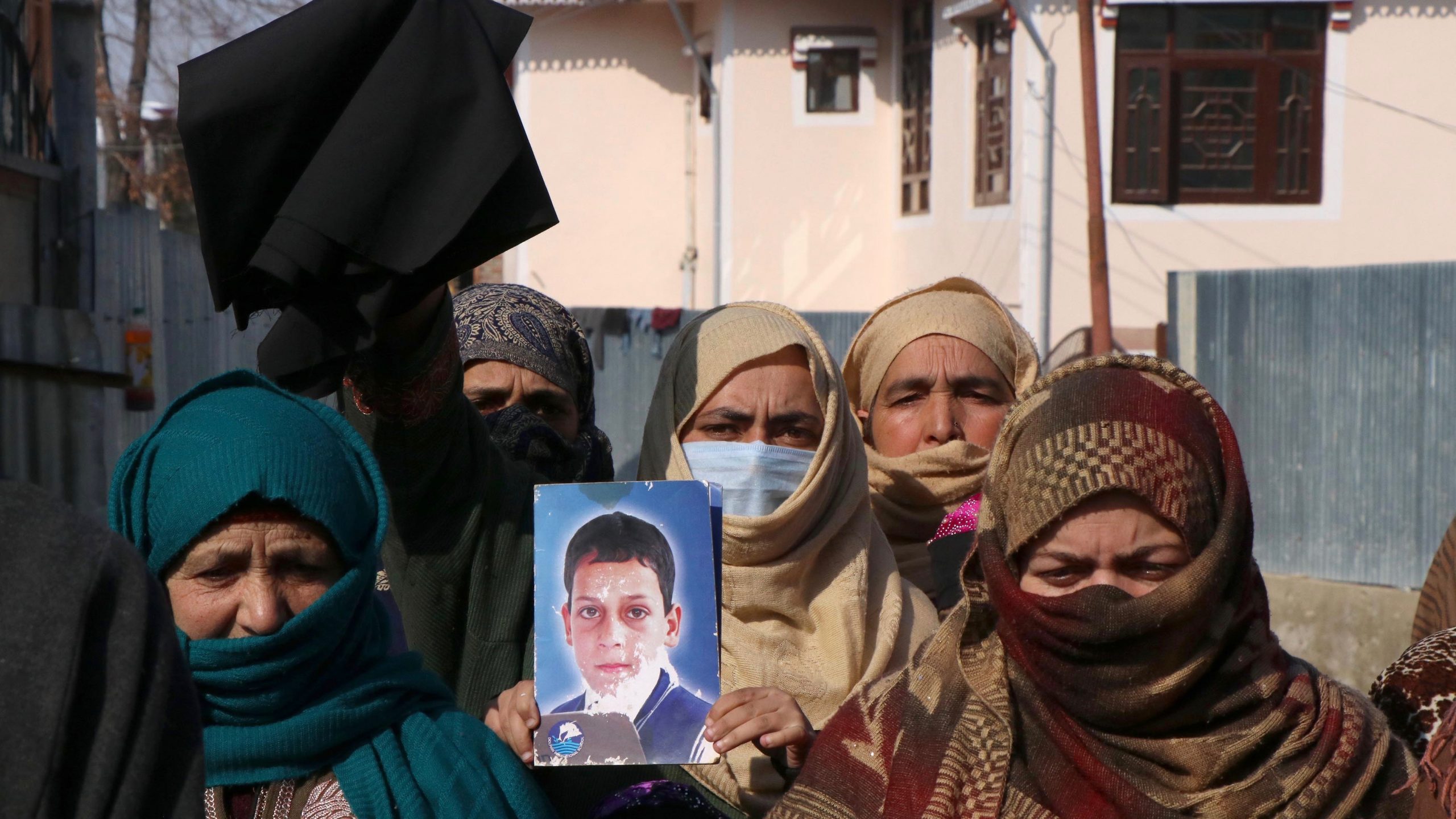On Tuesday, January 19, families of three youths who were killed in Srinagar’s HMT last month held a protest in southern Kashmir’s Pulwama district, in the Bellow area, demanding that the bodies of their kin be returned. Authorities have buried the bodies of the youth killed in a gunfight on December 30 at an unknown location in north Kashmir’s Sonamarg.
Mushtaq Ahmad Wani, the father of Ather Mushtaq, a teenager who was one of the victims, said that he would move to the main city to protest if the authorities did not return his son’s dead body. “I am going to protest until my last breath,” he said, adding, “I will not hesitate to go to the Supreme Court. I will wait for a week or I will end my life at Lal Chowk. This case should be investigated before that.”
Ajaz Maqbool Ganai (24) and Zubair Lone (22), who worked as a mason in Shopian’s Turkwagen, were the other two youth killed by the security forces on December 30. All three had been falsely dubbed as militants.
Carrying a black banner, the families members, accompanied by scores of residents, shouted slogans asking for justice and for the dead bodies to be returned.
Following their killings, the families had gathered outside the police control room in Srinagar claiming that it was a ‘fake encounter’ and demanded the dead bodies be returned.
In a video message, Mushtaq had appealed to locals to assemble at the empty grave of his son at the ancestral graveyard in the village. “Due to the healthcare precautions we cancelled the large gathering at the graveyard so only the family members and neighbors participated in this protest,” he later said.
As per local reports, paramilitary personnel stationed in southern Kashmir had blocked access to the village and placed armored vehicles on the main road, preventing locals and reporters from reaching there.
Rights organizations such as the Association of Parents of Disappeared Persons (APDP) and Jammu and Kashmir Coalition of Civil Society (JKCCS) have documented over the past three decades thousands of cases of enforced disappearances, extra-judicial killings and torture in Kashmir, including cases of civilians killed in fake encounters passed as militants. These include the infamous Machhil fake encounter in 2010, the Padroo case in 2006, and the Pathribal fake encounter in 2000.





